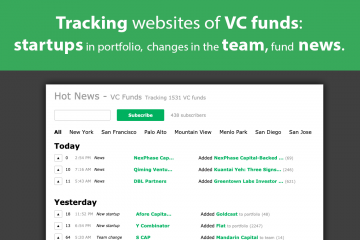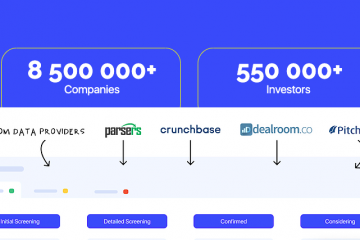What is the differences between web crawling and web scraping?
Only a lazy person does not speak about Big data, but he hardly understands what it is and how it works. Let’s start with the simplest – terminology. Big data is a variety of tools, approaches and methods for processing both structured and unstructured data in order to use it for specific tasks and purposes.
The most valuable commodity in the world after time is information.
The term “big data” was introduced by Nature’s editor Clifford Lynch back in 2008 in a special issue dedicated to the explosive growth of global information volumes. Although, of course, the big data itself existed before. According to experts, most data streams over 100 GB per day fall into the category of Big data.
Today, under this simple term only two words are hidden – data storage and processing.
In the modern world, Big Data is a socio-economic phenomenon, which is related to the fact that new technological capabilities have appeared for analyzing a huge amount of data.
A typical example of big data is information coming from various physical experimental installations, for example, the Large Hadron Collider, which produces a huge amount of data and does it all the time. The installation continuously produces large amounts of data, and scientists with their help, scientists solve in parallel many problems.
The appearance of big data in public space was due to the fact that these data affected almost all people, and not just the scientific community, where such problems have been solved for a long time. The public sphere of technology Big Data came out when it came to talking about a very specific number – the number of inhabitants of the planet. 7 billion that are collected on social networks and other projects that aggregate people. YouTube, Facebook, where the number of people is measured in billions, and the number of operations that they perform at the same time is enormous. The data flow in this case is user action. For example, data from the same YouTube hosting, which are poured over the network in both directions. By processing is meant not only interpretation, but also the ability to correctly process each of these actions, that is, to put it in the right place and make sure that this data is available to each user quickly, because social networks do not tolerate expectations.
With so much information, the question is how to find the information you need and understand it. This task seems impracticable, but using the web crawling and web scraping tools can be done quite easily.
Big data analytics, machine learning, search engine indexing and many other areas of modern data operations require web crawling and web scraping data. There is a tendency to interchangeably use the terms web crawling and web scraping and although they are closely related, there are differences between the two processes.
A web crawler sometimes called a “spider,” is a standalone bot that systematically scans the Internet for indexing and searching for content, following internal links on web pages. In general, the term “crawler” means the ability of a program to navigate web pages on its own, possibly even without a clearly defined end goal or goal, endlessly exploring what a site or network can offer. Web crawlers are actively used by search engines such as Google, Bing and others to extract content for a URL, check this page for other links, get URLs for these links and so on.
On the other hand, web scraper is a process of extracting specific data. Unlike web crawling, a web scraper searches for specific information on specific websites or pages.
Basically, web crawling creates a copy of what’s there and web scraping extracts specific data for analysis, or to create something new. However, in order to conduct web scraping you would first have to do some sort of web crawling to find the information you need. Data crawling involves certain degree of scraping, like saving all the keywords, the images and the URLs of the web page.
Web crawling would be generally what Google, Yahoo, Bing etc. do, searching for any kind of information. Web scraping is essentially targeted at specific websites for specific data, e.g. for stock market data, business leads, supplier product scraping.


